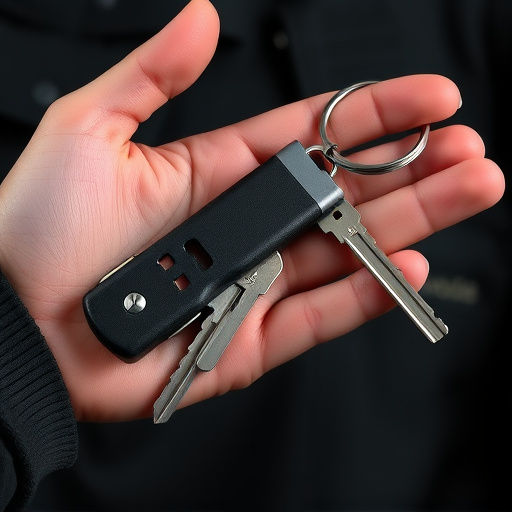Tactical keychain self-defense tools face varying legalities across US states, with regulations on sharp edges and stun features. Understanding state-specific laws is vital for compliance and peace of mind, especially in public spaces like schools, government buildings, airports, and restaurants. Regular checks for changes are crucial to avoid legal complications and misuse.
In today’s world, personal safety is a top concern, leading many individuals to explore tactical keychain self-defense tools as an easy-to-carry option. However, understanding legal requirements for these devices is essential before wielding them. This article delves into the intricate details of self-defense keychains, exploring the legal framework that governs their use, distinguishing between effective tactical tools and potential criminal liability, analyzing state regulations, and clarifying carrying limits and exceptions.
- Legal Framework for Self Defense Keychains
- Tactical Tools vs. Criminal Liability
- State Regulations and Their Variability
- Carrying Limits & Exceptions Explained
Legal Framework for Self Defense Keychains
The legal framework surrounding tactical keychain self-defense tools varies significantly across states. It’s crucial to understand that while these keychains may offer a convenient and accessible means of personal protection, they are subject to specific regulations. Some states explicitly allow the carriage of self-defense tools on keys, including tactical keychains, as long as they meet certain criteria such as size, functionality, and limited capacity for self-defense use only.
Other jurisdictions have stricter rules, classifying tactical keychains as weapons and subjecting them to more stringent controls. This may include age restrictions, requirement for permits or licenses, and even bans on certain types or designs. Individuals looking to carry a tactical keychain for self-defense should familiarize themselves with their state’s specific laws to ensure compliance and avoid potential legal repercussions.
Tactical Tools vs. Criminal Liability
While tactical keychains designed for self-defense may seem like an appealing personal safety measure, it’s crucial to understand the potential legal implications. These tools, often featuring functions like pepper spray or flashlights with stun capabilities, can be powerful instruments. However, their use is subject to specific laws and regulations that vary by state. Carrying a tactical keychain for self-defense could lead to criminal liability if not used appropriately under the law.
The key distinction lies in how these tools are classified and regulated. Some states permit certain self-defense devices with clear guidelines on usage, while others may have stringent restrictions or outright ban them. Using a tactical keychain in a way that inflicts harm or fear of harm beyond what is necessary for self-defense could be considered criminal, leading to charges like assault or aggravated assault. Therefore, individuals should familiarize themselves with local laws and use such tools responsibly to avoid potential legal consequences.
State Regulations and Their Variability
When it comes to tactical keychain self-defense tools, state regulations vary widely. What may be permitted in one state could be strictly controlled or even illegal in another. This variability is due to differing local laws and interpretations of what constitutes legal self-defense. For instance, some states allow certain types of tactical keychains that contain sharp edges or stun features, while others ban them outright.
Understanding these regulations is crucial for folks who carry self-defense tools on their keys. It’s essential to check the specific laws in your state and stay informed about any changes that may impact your rights. This ensures you’re not only complying with the law but also have the peace of mind knowing you’re prepared in case of an emergency.
Carrying Limits & Exceptions Explained
In many states, there are specific laws regarding the carrying of tactical keychain self-defense tools for personal safety. While these devices can be powerful tools for protection, understanding the legal limits and exceptions is crucial before you decide to carry them. The keychains are generally prohibited in certain public places like schools, government buildings, airports, and restaurants due to their potential as weapons. Additionally, some states have restrictions on the type of self-defense tool that can be carried, focusing on devices that resemble firearms or knives to prevent accidental discharge or misuse.
Exceptions to these rules often exist for individuals with valid permits, such as those granted for concealed carry weapon (CCW) holders. These exceptions vary by state, but generally, licensed CCW carriers may legally possess tactical keychains while still adhering to the specific regulations of their permit and local laws. It’s essential to know your rights and responsibilities to ensure compliance and avoid any legal issues.
Understanding the legal framework surrounding self-defense keychains is crucial for individuals seeking to empower themselves with tactical tools. While these compact devices offer a sense of security, state regulations vary widely, affecting carrying limits and potential criminal liability. Staying informed about local laws is essential to ensure compliance and avoid unintended consequences when relying on self-defense keychain tools.
